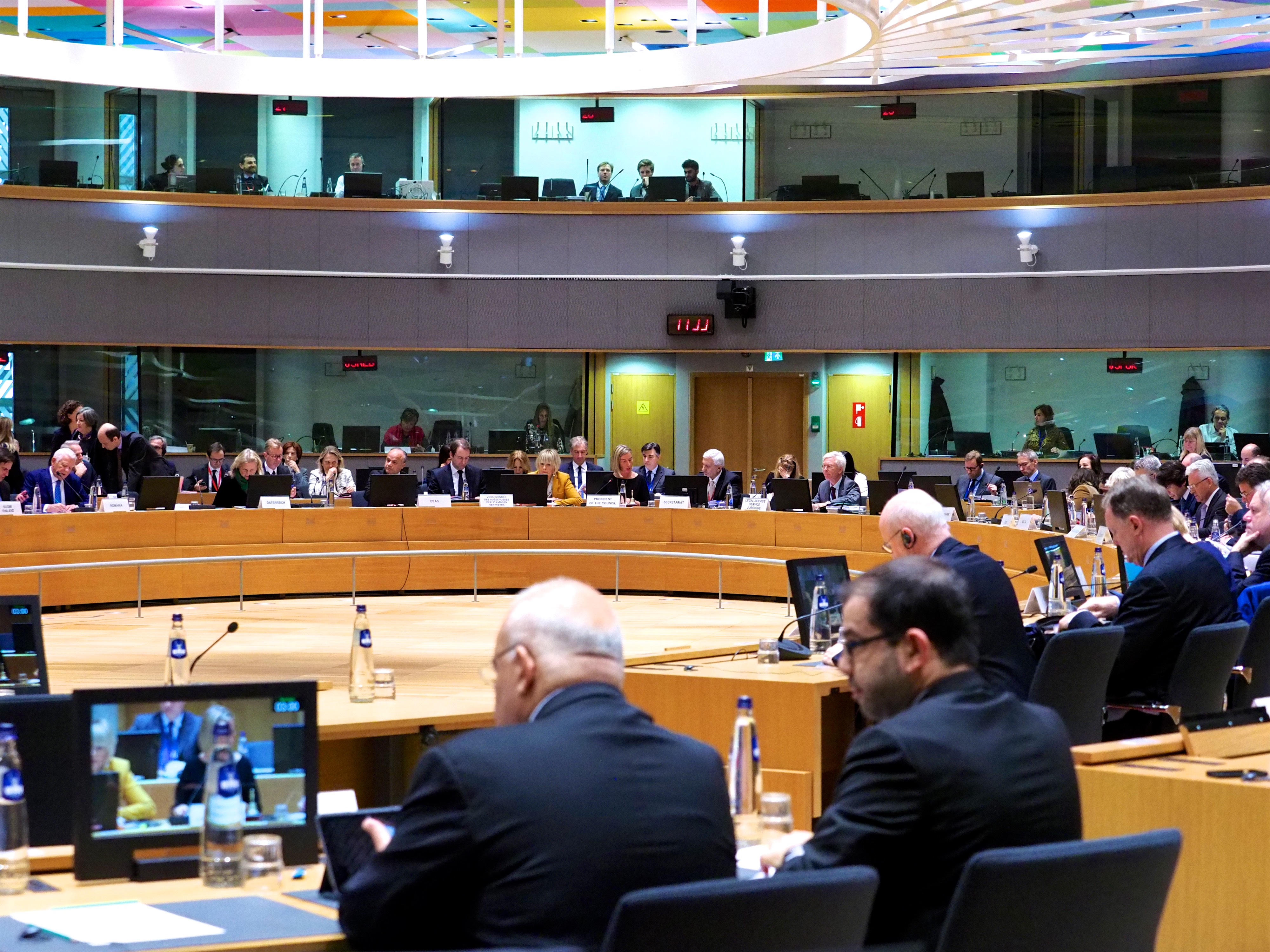Europe faces challenging times. Its economic success is under threat from inflation and
rising energy and raw material costs. This creates a situation where energy security is more important than ever.
Defining Europe
For our purposes, Europe comprises the 27 nations of the European Union (EU) plus Britain, Norway, Switzerland and Liechtenstein. Also included within the European strategic space are:
- Albania (NATO member)
- Bosnia and Herzegovina
- Kosovo
- Montenegro (NATO member)
- North Macedonia (NATO member)
- Serbia
The borders of the European strategic space are the Atlantic Ocean in the west, the Barents Sea in the north and the Mediterranean in the south. Turning to the eastern borders of Europe and adjacent, one sees Russia, Belarus, Ukraine, Moldova and Turkey (NATO member). These days it is to the east where the immediate European security problems lie. However, the strategic challenges facing Europe are far more challenging and multi-faceted than European leaders perhaps might be prepared to admit.
Key Issues
To begin with, it’s worth looking at the positive side of Europe’s strategic situation. Nobody can doubt that Europe is an economic powerhouse. According to EU figures: “The EU accounts for around 15 per cent of the world’s trade in goods. The EU, China and the United States are the three largest global players in international trade.” In fact globally, in terms of exports, only China exceeds the EU. The EU states that: ”The total value of all goods and services produced (gross domestic product or GDP) in the EU in 2019, when the UK was still part of the EU, was €16.4 trillion.”
The International Monetary Fund (IMF) provides some interesting data on the makeup of the top ten global economies covering nominal GDP in 2020 and denominated in billions of US dollars. According to the IMF, Italy has the eighth largest economy with a GDP of US$1,848.22Bn, France seventh with a GDP of US$2,551.45Bn, the UK fifth with a GDP of US$2,638.30Bn and then Germany at number four, with a GDP of US$3,780.55Bn. To put that into perspective, Japan has the third largest economy with a GDP of US$4,910.58Bn, with China with a GDP of US$15,222.16Bn and finally at number one, the US, with a GDP of US$20,807.27Bn.
Looking at these IMF figures, it would be easy to be negative about European economic performance, but if you think about it, there is much to be positive about. Four of the top ten global economies are European countries. Then, if the nominal GDP figures of those four countries are added together you would get a GDP of US$10,818.52Bn, easily surpassing Japan to become the third largest global economy by a considerable margin. Add in a few more European national GDP figures, for example Spain at US$1,247.46Bn, the Netherlands at US$886.34Bn and Switzerland at US$707.87Bn, or US$2,841.67Bn between the three countries, and Europe’s economic strength becomes even clearer.
Negative Factors
While these headline economic numbers paint a very favourable picture, other factors have entered the equation and these will have a negative impact both socially and economically. First among these negative factors is COVID. As an example, we added together all of the deaths classified as caused by COVID in 12 European countries, namely: the UK, Italy, France, Germany, Poland, Spain, Romania, Hungary, the Czech Republic, Bulgaria, Belgium and the Netherlands as of early April. The total deaths numbered 1.041M people in just these 12 countries. A point to bear in mind is that many countries are adjusting their COVID death numbers, as they were often inaccurate as they failed to take into account comorbidity and pre-existing medical conditions.
Whether the COVID death count in Europe is reduced is immaterial, the number of fatalities was still massive and the social consequences of efforts, such as lockdowns, to fight the pandemic have had their own unforeseen consequences such as a rise in suicide rates, particularly amongst the young. Then there is the economic and social dislocation caused by the pandemic and, of course, the vast and unsustainable costs of government measures to confront the pandemic.
Even now, with COVID measures either substantially relaxed or disappearing completely in Europe, elsewhere the situation is grim. Continuing with its ‘zero-COVID’ policy, the Chinese Government has locked down Shanghai, with its population of over 26 million. Shanghai is a major Chinese financial centre and a critical economic and global supply chain node. These days, disruptions in China inevitably spread globally and cause economic disruption around the world.
Before we even discuss current events and their economic impact, it is plain to see that Europe’s economy was being hit by multiple negative trends. Rising prices in terms of fossil fuels (oil, gas and coal), higher prices in terms of energy and transportation, and in turn, raising prices throughout the economy. Raw material prices were increasing as well, all of which created an inflationary surge in the global economy. Those thinking of purchasing an electric vehicle to avoid fuel price increases, found themselves with even more to pay as Lithium prices rose enormously, battery grade lithium carbonate prices are at historical highs.
Post-COVID, European economies were already stressed, which means that there will have to be some very clever economic policy decisions made by Europe’s leaders. Unfortunately for them, before they could make those decisions, the build-up to the Russian invasion of the Ukraine occurred and then the actual invasion took place. Further energy cost increases create more economic damage, rises in food prices as Ukraine’s agricultural exports and those of Russia cannot be guaranteed. Fertiliser costs are also rising adding to further cost pressures on food production. Costs increase, and wages go up to compensate, costs rise in turn and you are in a spiral of wage-price inflation and there is a return to the economic trauma last experienced in the 1970s.
Energy Crisis
For all the talk about energy security in recent years, it has become clear that effectively outsourcing your energy requirements to countries like Russia was not a particularly shrewd move by European leaders! Assuming that gas prices would permanently remain low and that gas would always be easy to acquire on the international market, also proved to be a fallacy. Another failure was to not have enough storage capacity to meet gas requirements, an error that Britain is currently suffering from.
Fundamentally, the problem is that energy policy in Europe has been driven in recent years more by wishful thinking than any clear sighted analysis of energy requirements for a national economy, and how they might be met. It was so simple and so gratifying to talk about decarbonising energy and moving forward with renewables. The reality was that renewables had to be subsidised, with those costs covered by raising energy prices. Then there is the problem with renewables in that the sun does not shine all the time and the wind does not blow all the time, so you need to balance the inputs into your electricity grid and that is done with a gas-fired power station that can be turned on and off when needed, but is hardly very green and gas then has to be imported, which diminishes energy security.
Of course, if governments are serious about decarbonising energy the only proven and logical solution at this time is nuclear power. This is somewhat unfortunate as green advocates have spent years demonising nuclear power. However, France, which is the leader in nuclear energy in Europe, will be introducing a new generation of nuclear stations to ensure energy security. Others are also turning to nuclear for their energy needs.
In Britain, some 15 per cent of national power requirements are met by nuclear energy, with six power stations in operation, all run by EDF, the British arm of the French energy giant. One station will start decommissioning in July this year, a new station Hinkley Point C is under construction (expected to come online in 2026) and EDF have proposed building a new station known as Sizewell C. EDF are also looking to extend the service life of the Sizewell B station, which provides 3 per cent of the UK’s electricity, from 2035 to at least 2055. According to the British Government, “France currently has nine times more nuclear capacity than the UK.”
In their “British Energy Security Strategy” released in April, the British Government committed to “increasing our plans for deployment of civil nuclear to up to 24 GW by 2050 – three times more than now and representing up to 25 per cent of our projected electricity demand.” This new British energy security strategy is an important development, but it still puts too much emphasis on renewables.
Massive rises in the cost of energy will plunge countless Europeans into fuel poverty, add that to food and other key prices going up and you have a recipe for misery, all of which does nothing for social cohesion. On top of that, rising energy prices will inevitably force productive industry to relocate to more cost-efficient locations, further diminishing Europe’s economic potential.
Facing Tomorrow
Current realities mean that Europe faces challenging times; its economic success is under threat from inflation and rising energy and raw material costs. This creates a situation where energy security is more important than ever before, but the problem for Europe is when the need for energy security comes into conflict with the European elite’s obsessive environmental concerns. Onshore and offshore oil and gas exist in Europe, then comes the question of fracking. What is needed is an open-minded assessment of energy demand and security of supply versus environmental impact. The French president might call for Europe to have ‘strategic autonomy,’ but that is not going to be possible to achieve if there is not enough power to keep the lights on in Europe.
Incidentally, media reports indicate that some western European nations are finally taking measures to reduce their dependence on Russian gas. The nations in question are Belgium, France, Italy and Germany, all of whom have turned to Qatar to establish new gas supply relationships. Switching to energy dependence on a state in the Middle East does not seem to be the strictest interpretation of energy security. This is yet another example of Qatar’s mastery of soft power; becoming a critical energy supplier is added to its massive investments in European companies and economies.
The French president is also a proponent of greater European integration. We have spoken of Europe’s economic strength, but there is more, as the EU itself states: “The EU covers over 4 million km² and has 447.7 million inhabitants.” Why is it then that the EU leadership makes such little impression on the international scene? Cast your mind back to the period before the invasion of the Ukraine. Was Europe speaking with one voice in condemnation of a potential conflict and taking steps to block such a conflict? The answer is no! Was the EU at the centre of the European response to the crisis? Again, no! The EU in Brussels always seems to take far too long to react.
The period before the Russian invasion was surely the time for Europe to speak with one voice and act together, but it never happened; there was too much posturing and too much self-interest. Brussels and those European states who call for further European integration look at Europe’s economic strength, its large population and land area and see a superpower in all but name, perhaps the third superpower with China and the US. Ironically, now is the opportunity for Europe to assert great power status, especially since US foreign policy has become so unpredictable, and to seize the moment. The situation in Ukraine makes this the time for Europe to assert itself.
Sadly, there is no evidence that Europe has the ability to become confident and forceful. There are still too many mixed messages emanating from Europe’s capitals. Until European nations can work together, plot a unified course in foreign, defence and even energy policy, and learn to be a leader rather than a follower, Europe will not be able to assert strategic relevance.












